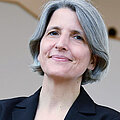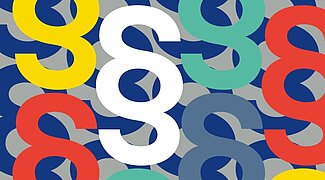Diversity
Diversity, i.e. the consideration of variety and heterogeneity in the formation of groups, teams and approaches, is discussed today in relation to a wide variety of topics: from biodiversity to multicultural teams that are balanced in age and gender, to the integration of people who have just arrived in Germany or other countries. What does this discussion mean for international cooperation and for German foundations operating abroad?
Vision of the 2030 Agenda for sustainable development
The goal of German development cooperation is to work together with other countries or institutions as equal partners in order to "give people freedom without material hardship, to shape their lives in a self-determined and autonomous manner and to enable their children to have a good future". The United Nations’ 2030 Agenda for Sustainable Development is even clearer, explicitly addressing human rights and dignity, respect for different ethnic groups and cultures, and equal rights for girls and women in its vision. It calls for "A just, equitable, tolerant, open and socially inclusive world in which the needs of the most vulnerable are met."
Moreover, the 2030 Agenda emphasises that it is no longer a matter of discussing so-called "developed countries" or "developing countries" – all countries are called upon to implement the sustainability targets in accordance with their declaration of commitment, and sustainable development for our future can only be achieved if this takes place in all countries.
Criticism of development cooperation
For many years, development cooperation approaches have repeatedly been the subject of criticism, and of controversy. On the one hand because of their effectiveness and on the other hand because of their approach. In particular, the question has been raised to what extent diversity and the voice of the people who should receive support are adequately taken into account. Eurocentrisms and sinocentrisms, or the categorisation of the First World versus the Third World, are some of the many catchwords in this discussion. In this respect, the goals of Germany’s development work and the 2030 Agenda, which was signed by 193 states, are a very good basis for the implementation of diversity in all areas of development cooperation.
However, current publications on sexual abuse in the context of the missions of Oxfam and Médecins Sans Frontières (Doctors Without Borders) also show us how much attention needs to be paid to the implementation of diversity at all levels, and that it needs to be lived, right down to every single employee or volunteer.
There are many excellent examples of foundations that integrate diversity into their foundation work

EZ-Scout Dr. Annette Kleinbrod
All articles of EZ-Scout Dr. Annette Kleinbrod
Dr. Annette Kleinbrod
All articles of Dr. Annette KleinbrodRelated Content
The reform of foundation law is coming
The bill to standardize foundation law will enter into force on 1 July 2023. The legislator has addressed important demands made by the Association of German Foundations and by academia, paving the way for improvements for small and large foundations alike.
Reflecting on 25 years of progress for gender equality – and how far there is to go
Twenty-five years ago, the World Conference on Women in Beijing adopted a Platform for Action that transformed national and international policies almost all over the world, recognizing that women’s rights are human rights. It impacted not millions, but billions of people.
“The SDGs are a powerful common language”
Benjamin Bellegy, Executive Director at the Worldwide Initiatives for Grantmaker Support (WINGS), on his new plans for the global SDG Philanthropy Platform (SDGPP).

